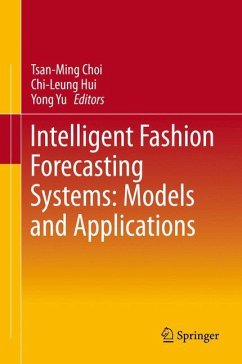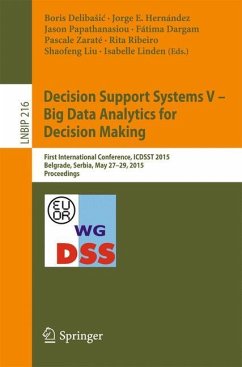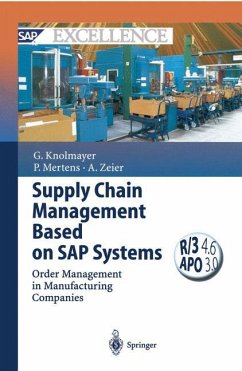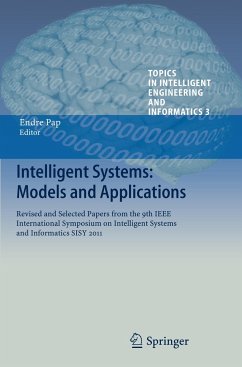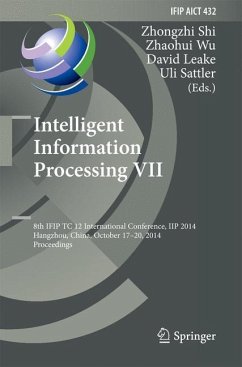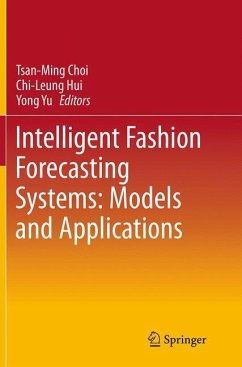
Intelligent Fashion Forecasting Systems: Models and Applications
Versandkostenfrei!
Versandfertig in 6-10 Tagen
83,99 €
inkl. MwSt.

PAYBACK Punkte
42 °P sammeln!
Forecasting is a crucial function for companies in the fashion industry, but for many real-life forecasting applications in the, the data patterns are notorious for being highly volatile and it is very difficult, if not impossible, to analytically learn about the underlying patterns. As a result, many traditional methods (such as pure statistical models) will fail to make a sound prediction. Over the past decade, advances in artificial intelligence and computing technologies have provided an alternative way of generating precise and accurate forecasting results for fashion businesses. Despite ...
Forecasting is a crucial function for companies in the fashion industry, but for many real-life forecasting applications in the, the data patterns are notorious for being highly volatile and it is very difficult, if not impossible, to analytically learn about the underlying patterns. As a result, many traditional methods (such as pure statistical models) will fail to make a sound prediction. Over the past decade, advances in artificial intelligence and computing technologies have provided an alternative way of generating precise and accurate forecasting results for fashion businesses. Despite being an important and timely topic, there is currently an absence of a comprehensive reference source that provides up-to-date theoretical and applied research findings on the subject of intelligent fashion forecasting systems. This three-part handbook fulfills this need and covers materials ranging from introductory studies and technical reviews, theoretical modeling research, to intelligent fashion forecasting applications and analysis. This book is suitable for academic researchers, graduate students, senior undergraduate students and practitioners who are interested in the latest research on fashion forecasting.





